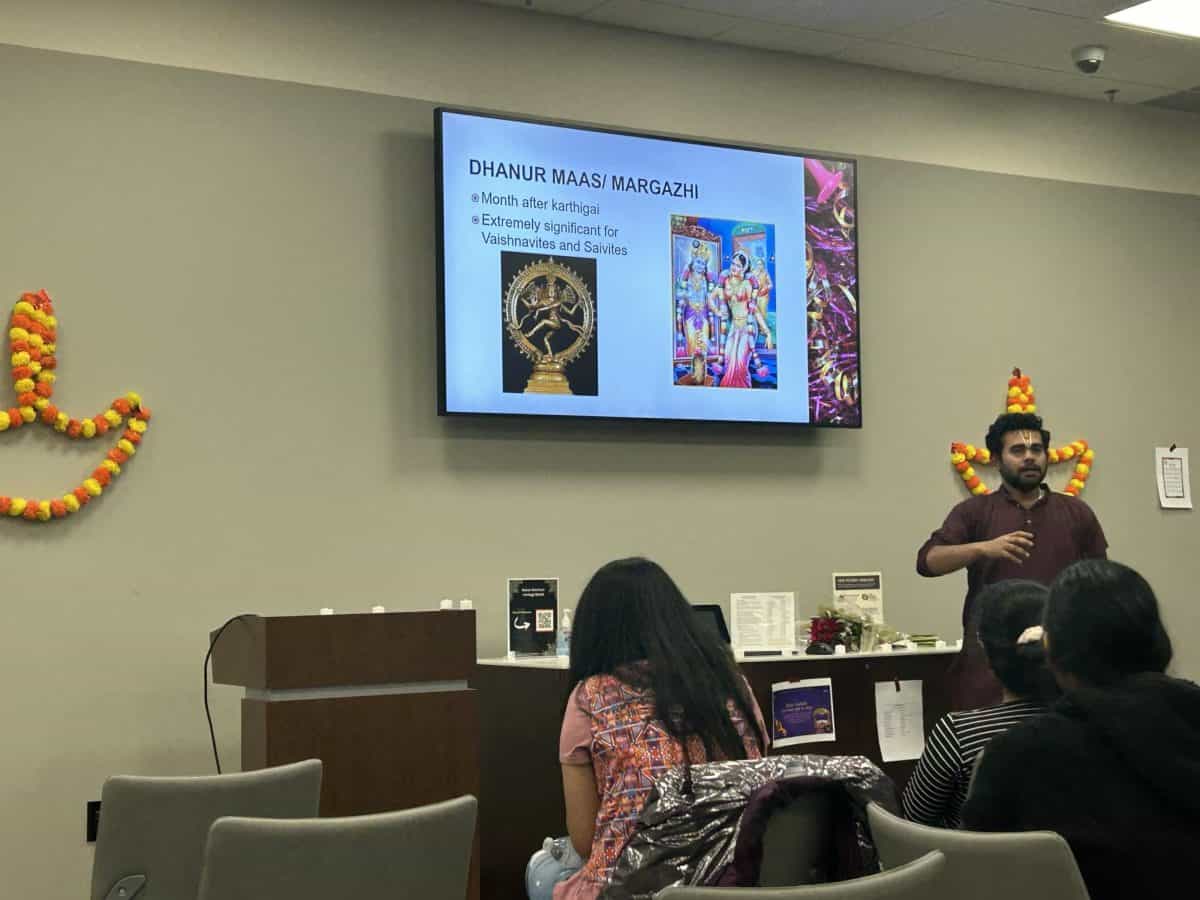The UA Vedic Society held an event for Kartik Purnima on Thursday evening to celebrate Kartik month.
Students and community members gathered at the Intercultural Diversity Center to acknowledge the festivals and celebrations that fall within the month.
The UA Vedic Society’s Instagram page describes the group’s goals as encouraging student health and spirituality based on the principles of Hinduism. According to Britannica, Vedism is a religion with historic roots in India whose beliefs influenced the start of Hinduism.
Purnima, meaning “full moon” in Sanskrit, is the day of the month when a full moon occurs. Kartik Purnima is the celebration of the full moon in Kartik month, which took place between Oct. 29 and Nov. 27 and is the holiest month in the Hindu calendar.
Dr. Tumkur Shivashankara, a local physician, spoke on the cultural significance of beliefs and traditions in India and discussed Hindu mythology. Because the purpose of the month is to promote purification and enlightenment, Shivashankara also helped those attending to practice meditation.
He said the event’s goal was to bring the community together.
“The purpose is to get the people, bring everyone together and share our ideas,” Shivashankara said.
Those in attendance were also served a sattvik meal.
Abhinandhan Narayanan, a mechanical engineering graduate student and president of the UA Vedic Society, explained which foods are considered sattvik.
“It’s completely organic with no preservatives or chemicals,” Narayanan said. “All the fruit and vegetables that are used come in direct contact with the sunlight.”
Foods that are raw or minimally processed, such as whole grains, fruits, vegetables and nuts, are sattvik, according to WebMD. Traditionally, during Kartik month, Hindus consume only sattvik food.
Narayanan also said hosting this event allowed students to celebrate their culture while far away from home.
Architha Bommena, a senior majoring in psychology, said the event made her feel a sense of community.
“I was able to connect with my heritage and learn about my own country and traditions,” Bommena said.
Narayanan said the organization plans to hold more cultural events in the spring semester.
“It’s a university after all,” Narayanan said. “Everyone’s here to grow their knowledge and experience different cultures.”









